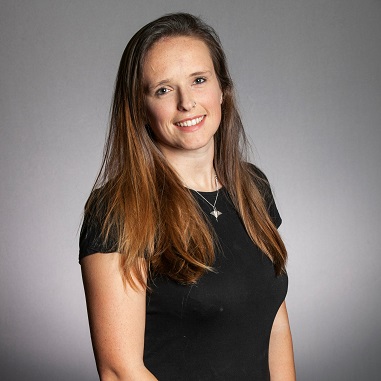“Just as humans are connected through family, friends and colleagues, all fish are connected to each other by their interactions” says Dr Katie Dunkley, Charles Darwin and Galapagos Islands Fund Junior Research Fellow at Christ’s College, Cambridge.
One interaction observed on coral reefs is ‘cleaning’, where a cleaner fish - such as the sharknose goby - feeds on parasites, dead tissue, scales and mucus picked off the bodies of other fish (the clients).
This ‘cleaning service’ provides the goby fish with a meal. The client fish are kept clean and healthy and they may even receive a massage through the cleaning technique used by the gobies known as ‘tactile stimulation’.
Research led by Dr Dunkley has shown that aggressive behaviour by damselfish can alter the relationship between cleaner fish and their clients.
Dr Dunkley took part in a six-week field trip to Tobago where five researchers spent over 34 hours observing cleaning interactions at fish cleaning stations.
These ‘cleaning stations’ are typically at fixed locations on a coral reef. If visiting fish want a clean, they will adopt a stationary pose at these stations, typically standing on their head or tail with their fins flared.
The study found that client fish such as parrotfish, surgeonfish and butterflyfish avoided cleaning stations where they were more likely to encounter aggressive damselfish.
Dr Dunkley said:
“These territorial damselfish fish spend a lot of time patrolling their territories, scaring away intruders through biting, attacking, chasing or threatening displays and this antisocial behaviour may be causing clients to avoid visiting certain cleaning stations.”

Future research will try to understand why damselfish are disrupting cleaning behaviour: the damselfish may be protecting their algae supplies or trying to monopolise cleaning stations.
As coral reefs degrade due to climate change or other human actions, damselfish may become more common and/or aggressive, impacting the cleaning interaction further. This could ultimately affect the relationships between cleaner and client fish and upset the delicate balance of the ecosystem.
“We need to understand how different interactions, like cleaning and aggression, interlink to promote a stable reef environment”, said Dr Dunkley.
Dunkley et al, 'The presence of territorial damselfish predicts choosy client species richness at cleaning stations', Behavioral Ecology (2023).
The study was funded by a Natural Environment Research Council GW4+ studentship and Christ’s College University of Cambridge Galapagos Islands Fund (both awarded to Dr Dunkley). Last author, James Herbert-Read, was supported by the Whitten Lectureship in Marine Biology, and a Swedish Research Council Grant.

